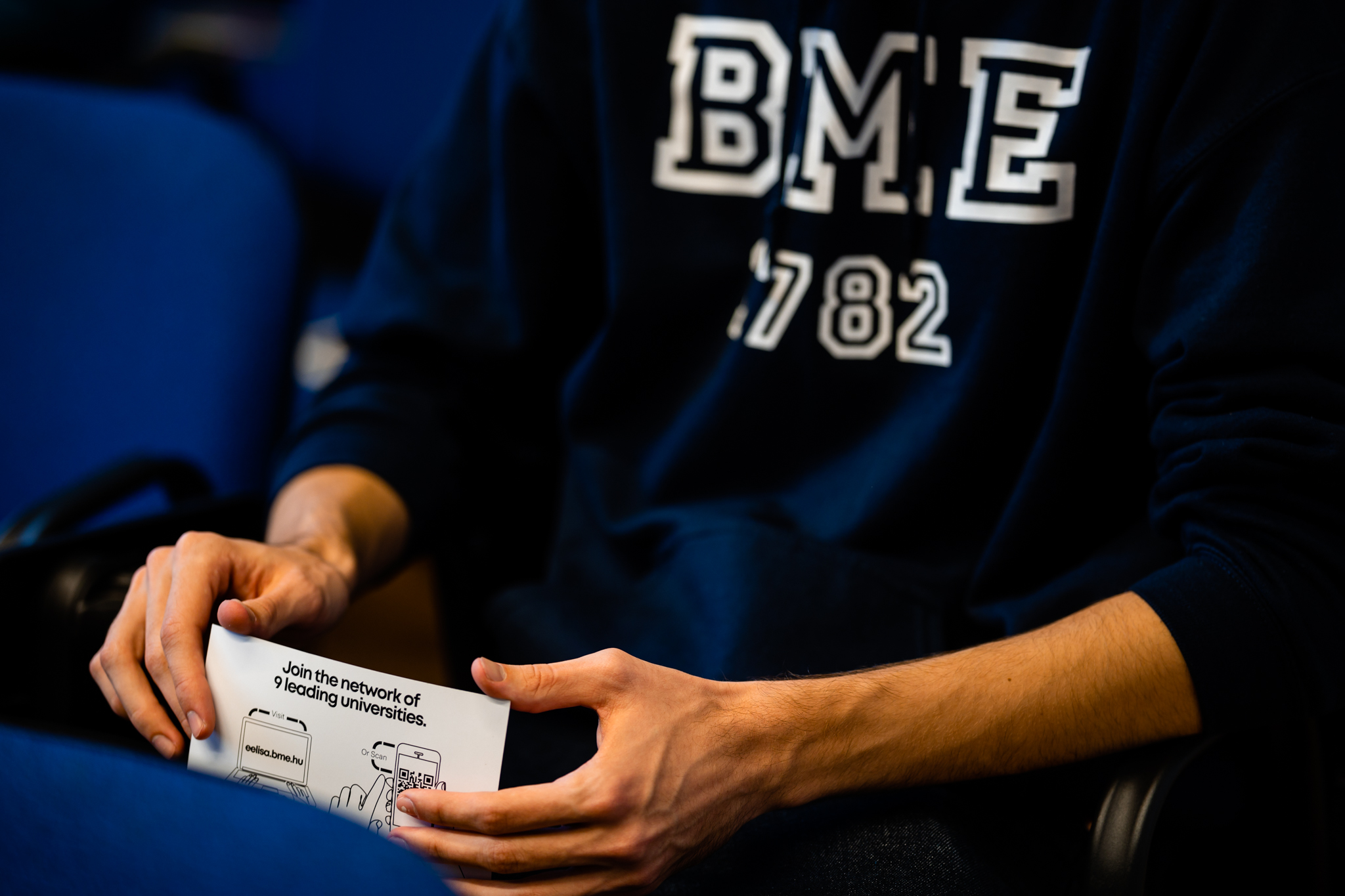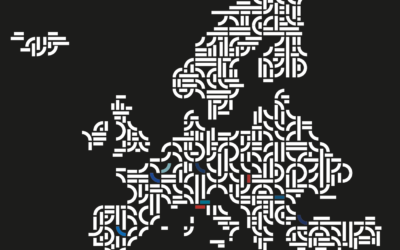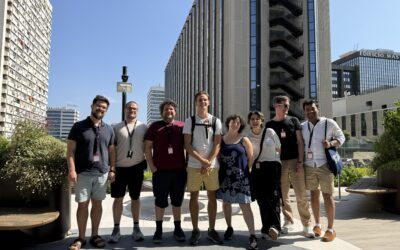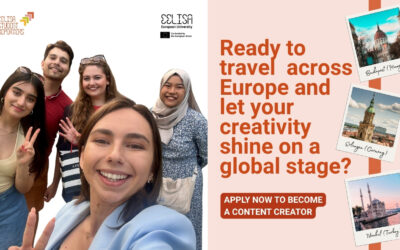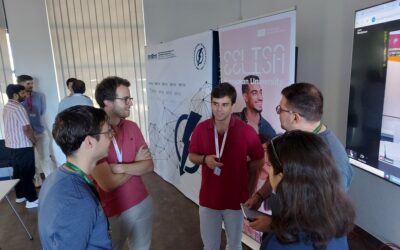„Be a part of an active international community and make an impact on the future of Europe!”
On 17th November 2022, BME, parallelly with other EELISA universities, organized a thematic EELISA-day, where local EELISA communities had the opportunity to introduce their progress and to share more information about their plans and goals for the future. The program’s second half was about Open Science, an innovative and inclusive way of doing research to maximize scientific and societal impact.
László Gergő Vigh PhD., Department of International Academic Affairs, opened the conference and talked about the visions of the alliance: „We are EELISA, The European Universities Alliance that will transform engineering education and society.” He also mentioned that the EELISA consortium is the biggest alliance amongst European university alliances, with over 180 000 students, 16 000 faculty, and 11 000 staff in the continent. He also talked about the project’s proposition, in which BME and its students and innovators are essential to succeed. „EELISA’s mission is to transform European higher education into the seed for a future in which society masters global challenges with smart and sustainable solutions enabled by engineering.”
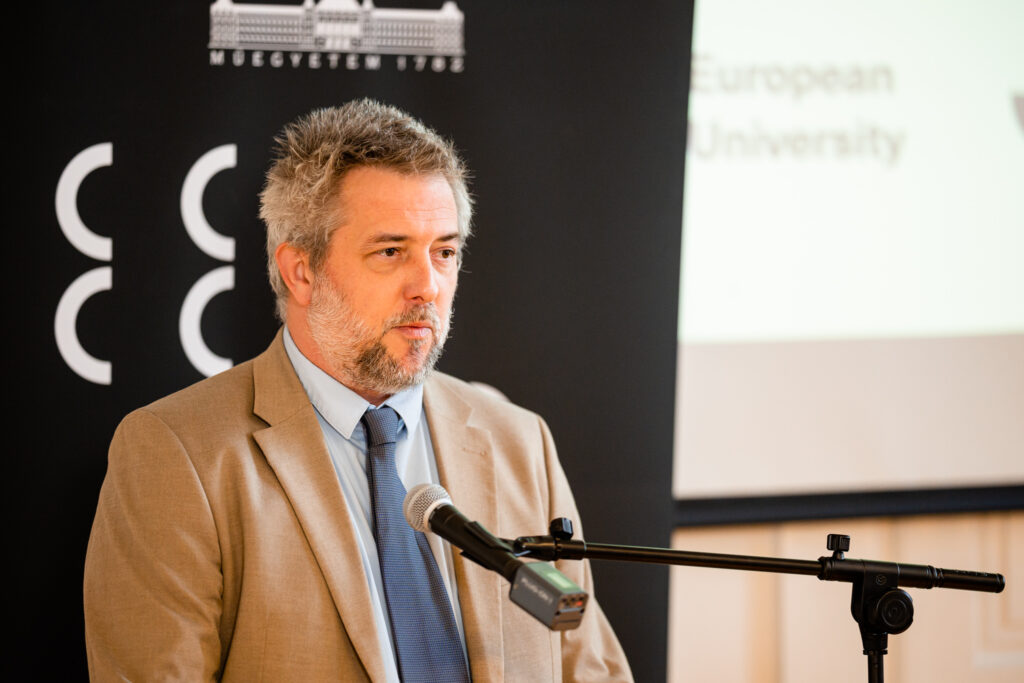
Then Sarolta Tóvölgyi PhD., the moderator of the conference, gave an insight into what it really means to be part of the upcoming communities: „communities are basically the engine of the alliance. The communities aim to boost transnational mobility, to foster cross-sectional networking within EELISA, and to organize activities regarding their aims.”
After the conference’s opening, each section’s leaders gave presentations about their communities, main objectives, and goals.
Fruzsina Pataki PhD., the leader of the Future of Work section, pointed out some possibilities that can impact the well-being of office workers in the future: „we would like to develop a solution for the challenges that the future holds, so we broke with the traditional research methods of interviews and focus groups, and we are experimenting with gamified research method.” She also mentioned that research methods like this could point out problems more precisely and provide more efficient solutions for a company’s employees and managerial staff.
Orsolya Barna, the leader of the Interdisciplinarity of Sustainable Competences in Engineering Education community, talked about the importance of interdisciplinarity when it comes to sustainable skills development in engineering education: „interdisciplinarity is often seen as one of the main tools for sustainable education. We hope that by the end of our activity, we will develop a set of recommendations for partner institutions of EELISA to upskill their students for sustainability.” She pointed out that by October 2023, they will identify sustainable skills for engineers and have partnering companies such as engineering companies, employment agencies, and stakeholders.
In the name of the Vision & Engineering community Ágnes Urbin Ph.D., spotlighted the importance of visual science: „humans are the users of products and systems designed by engineers. Understanding the mechanism and fundamentals of our optical system should be an essential element of engineering design, measuring, and optimization.
Gyula Zilahy PhD., head of Young Researchers for Interdisciplinary Sustainability Science, spoke about the challenges and the goals of the community: „Two challenges this community have is networking, learning about each other, each other’s research topics, and understanding interdisciplinarity and implementing it in our daily research activity.”
The presentation of Balázs Bokor PhD., who is the leader of Sustainable Buildings, Cities, and Communities, was about the way they want students to think about the sustainable construction of cities: „it has the goal to develop educational materials to teach students about the construction and management of cities, communities, and buildings which are sustainable on the long run, not only from the energy consumption point of view.” He also mentioned the difficulty of finding the balance between designing a sustainable building and making it comfortable for the people living or working in it.
Balázs Nagy, PhD., head of the Tech Diplomacy&International Cooperation community, started with a story of his, which helped the audience understand the difficulties their team is having with interdisciplinarity: „not that long ago, I asked one of my friends from Brazil, a medical scientist to give a presentation at my lecture. After he left, I asked my students what language he used. They said English. I was smiling and saying: no, it was the language of the medical people that we don’t understand at all. So our goal is to help and teach our students how to spread the word of technology and scientific results efficiently.”
The second part of the conference was a practice-oriented workshop on Open Science delivered by Borbála Schenk, Chief European Research Funding Advisor of BME. After providing an introduction to what open science is, Borbala showed practical examples for students and researchers how to share data, results, outputs in the research process, what are the concerns and benefits of the co-creative approach. : The workshop had two guest-speakers,, the first guest was Esteban Gonzalez, UPM, the Co-Chair of the EELISA Open Science community, who also highlighted the importance of opening up scientific process: „I want to show you my definition of Open Science, which Borbála has also mentioned earlier in her presentation. The definition sounds like this: opening the scientific process to a broader audience, promoting collaboration and participation. It is not only to open the data, open the software, it is about to open every stage of the process like forming communities, forming connections.” Borbála also invited Godwin Emmanuel Bandawa, a BSc. student in Civil Engineering and intern of the BME FIEK Horizon Europe Team to represent Open Science from the student’s point of view. Godwin spoke about the importance of integrating open science practices to research: „Open Science can be implemented by researchers using a set of principles termed as „FAIR”: findable, accessible, interoperable and reusable. The benefits of open science are not limited to the scientific community or researchers only but to every member of the society. Hence, every stage of the research process should be transparent, reliable, reusable, reproducible and relevant.”
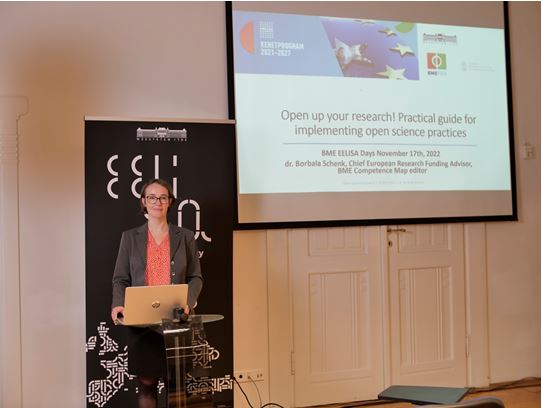
If You would like to know more about the same propositions and goals of the EELISA communities, visit our websites and check out our Youtube channel, where you can find the recordings of the event and more videos on the topic.
More photos here: Students, lecturers and researchers about the potential of EELISA | BME EELISA

